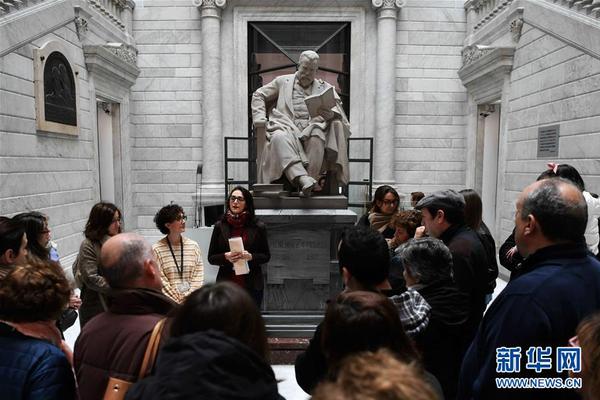Elon Musk recently said that the threat of Artificial Intelligence8 U.S.C 2257more dangerous than that of North Korea’s nuclear ambitions.
While I don’t pretend to be a foreign policy expert, I’m confident that Musk’s commentary oversimplifies things at the very least. And that AI, when defined, built, cultivated and deployed with the right human oversight, has the potential to do significantly more good for the world than harm.
In order to ensure Musk’s comments stay in the realm of extreme, though, the AI-focused technology community needs to collectively figure out some basic guide rails.
Understand ethical AI and its role in the future of work
A crucial step toward building a secure and thriving AI industry is collectively defining what ethical AI means for people developing the technology – and people using it.
At Sage, we define ethical AI as the creation of intelligent machines that work and react like humans, built with the ability to autonomously conduct, support or manage business activity across disciplines in a responsible and accountable way.
At its core, AI is the creation of intelligent machines that think, work and learn like humans. AI should not be a replacement for standard business rules or procedures.
That’s why we believe all AI-driven technology used in the workplace should embody and advance the interests of an individual company, its staff and its consumer base.
Recruit talent that understands AI – and its power to address workplace challenges
Companies deal with team changes regularly. Issues arise tied to trust, accountability and personnel behavior that goes against the values of a company – or society, in general. In the tech industry alone, sexism, racial bias and other serious, but eradicable trends persist from the C-suite down to the entry-level.
Consequently, the industry should focus on efforts to develop and grow a diverse talent pool that can build AI technologies to enhance business operations and address specific sets of workplace issues, while ensuring that it is accountable.
Employers need to recruit people who understand the importance of applying strict human resources guidelines to AI performing tasks alongside human employees across industries and geographies. AI, for its part, needs to learn how to conduct itself in a work environment and be rewarded for expected behavior to reinforce good habits.
Hopefully, AI’s human co-workers – including people actually building the technology – will learn vital AI management skills, adopt strong ethics and hold themselves more accountable in the process.
Develop AI that runs on data reflecting the diversity of its users
Humans possess inherent social, economic and cultural biases. It’s unfortunately core to social fabrics around the world. Therefore, AI offers a chance for the business community to eliminate such biases from their global operations.
The onus is on the tech community to build technology that utilizes data from relevant, trusted sources to embrace a diversity of culture, knowledge, opinions, skills and interactions.
Indeed, AI operating in the business world today performs repetitive tasks well, learns on the job and even incorporates human social norms into its work. However, AI also spends a significant amount of time scouring the web and its own conversational history for additional context that will inform future interactions with human counterparts.
This prevalence of well-trodden data sets and partial information on the internet presents a challenge and an opportunity for AI developers. When built with responsible business and social practices in mind, AI technology has the potential to consistently – and ethically – deliver products and services to people who need them. And do so without the omnipresent human threat of bias.
Ultimately, we need to create innately diverse AI. As an industry-focused tech community, we must develop effective mechanisms to filter out biases, as well as any negative sentiment in the data that AI learns from to ensure the technology does not perpetuate stereotypes. Unless we build AI using diverse teams, datasets and design, we risk repeating the fundamental inequality of previous industrial revolutions.
Through it all, it’s important to remember that the respective roles of humans and ethics in AI development is crucial. In fact, I think the shared future of AI and humans depends on them.
 Original image has been replaced. Credit: Mashable
Original image has been replaced. Credit: Mashable Kriti Sharma is the vice president of bots and AI at Sage Group, a global integrated accounting, payroll and payment systems provider. She is also the creator of Pegg, the world’s first AI assistant for accounting, with users in 135 countries.
Topics Artificial Intelligence
 Myth Appropriation
Myth Appropriation
 Wordle today: Here's the answer and hints for August 9
Wordle today: Here's the answer and hints for August 9
 What We’re Loving: Spiders, Spaces, Stinkin’
What We’re Loving: Spiders, Spaces, Stinkin’
 Best back to school deal: SereneLife Foldable Kick Scooter for $64
Best back to school deal: SereneLife Foldable Kick Scooter for $64
 Myth Appropriation
Myth Appropriation
 Best Galaxy deal: Get the Samsung Galaxy S23 for $699.99 at Amazon
Best Galaxy deal: Get the Samsung Galaxy S23 for $699.99 at Amazon
 Ring treated cops like influencers in a bid to boost its brand
Ring treated cops like influencers in a bid to boost its brand
 Twitter mourns the passing of President Joe Biden's beloved dog. Champ
Twitter mourns the passing of President Joe Biden's beloved dog. Champ
 What Comes After Resistance?
What Comes After Resistance?
 The Morning News Roundup for April 29, 2014
The Morning News Roundup for April 29, 2014
 Reading like a Bureaucrat
Reading like a Bureaucrat
 WeWork has 'substantial doubt' it will be able to stay in business
WeWork has 'substantial doubt' it will be able to stay in business
 Twitter comforts the intern behind that mass HBO Max email
Twitter comforts the intern behind that mass HBO Max email
 An Oral Biography of García Márquez, Part Two
An Oral Biography of García Márquez, Part Two
 Getting Schooled
Getting Schooled
 Why Children’s Books Matter
Why Children’s Books Matter
 An Oral Biography of García Márquez, Part Four
An Oral Biography of García Márquez, Part Four
 Netflix has quietly released an iOS game controller app
Netflix has quietly released an iOS game controller app
 Ruthless Take Downs
Ruthless Take Downs
 An Oral Biography of García Márquez, Part Five
An Oral Biography of García Márquez, Part Five
'Game of Thrones' Season 8: Which dragons will surviveYou can now play games with friends inside of SnapchatLeBron James helps Hillary Clinton's full court press in ClevelandComedian absolutely nails AOC impressionThe Bernie Sanders doppelgänger wants you to know he's not Larry David, eitherPaul Rudd is 50 years old and the internet doesn't believe him30 'Game of Thrones' episodes you need to watch before Season 8'CU in the NT' is quite possibly the wildest tourism slogan everDog assassins rule in 'John Wick: Chapter 3' CinemaCon footageGmail uses your inbox to remind you to vote'Knives Out' footage premieres at CinemaCon: Chris Evans gets nastyPaul Rudd is 50 years old and the internet doesn't believe him'Warrior' brings Bruce Lee lore to Cinemax with series premiere'Terminator: Dark Fate': Sarah Connor kicks ass in CinemaCon footageWatch a security officer nail 'At Last' after Michael Bublé hands her the micWatch this motherf*cking snake terrify passengers on a motherf*cking planeApple snags top AI researcher from GoogleTeen founded nonprofit to bring STEM to 'Murdertown, USA'Elton John biopic 'Rocketman' ignites CinemaCon with new footage'Take Back the Prom' campaign wants to change prom culture OpenAI's Sam Altman breaks silence on AI executive order Vaginal discharge: what its colour, texture, and smell can tell you The Long and Pretty Good Mythologies: Paintings by Hervé Heuze Why is Michelle Williams narrating Britney Spears's audiobook? Distant Hammers: Notes on Art and Apocalypse The Last Days of Foamhenge Sam Lipsyte on Mary Robison’s “Likely Lake” Hearing aids can now be sold over the counter in the U.S. This recipe for air frying your Brussels sprouts is essential Boys World reveal their internet obsessions: Bada Lee, manifestation, Petra Collins, and more Pixel 8 reported issues are piling up: 3 common issues we’re hearing Radical Flâneuserie: Reimagining the Aimlessly Wandering Woman What do intimate washes do to our vaginas? 'Colin from Accounts' review: A messy, funny as hell rom Nauseating, Violent, and Ours: Chris Bachelder on Sports Gift Idea: Victorian Christmas Cards with Dead Birds Our Contributors Pick Their Favorite Books of the Year 'Fingernails' review: A sci Destruction & Sorrow: László Krasznahorkai on a Bus in China
1.4151s , 10130.671875 kb
Copyright © 2025 Powered by 【18 U.S.C 2257】,Exquisite Information Network